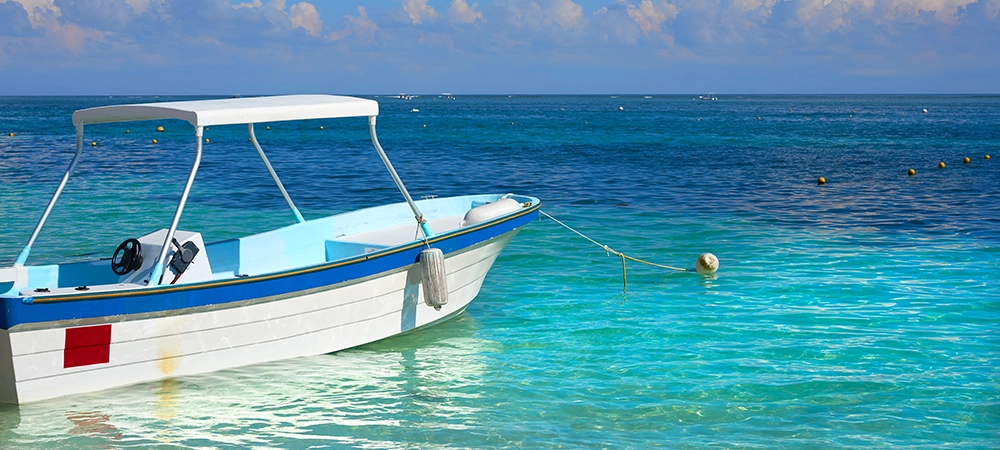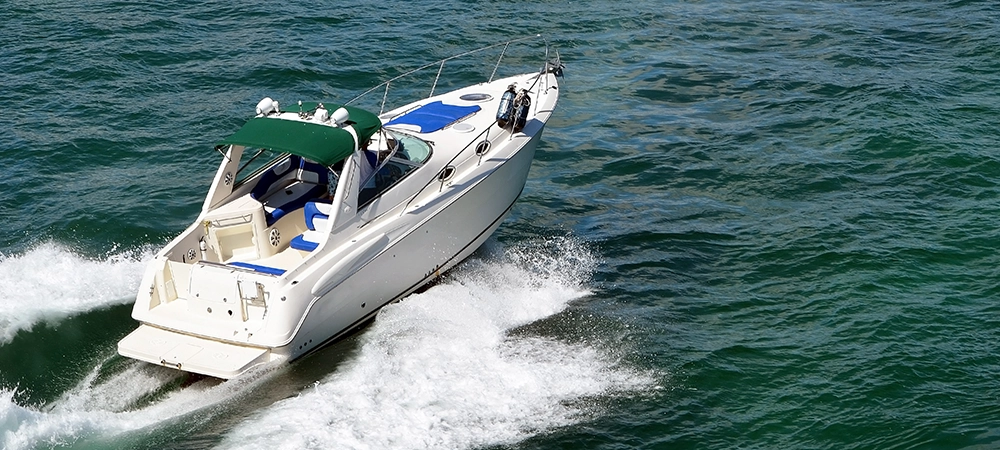Owning and operating a boat isn’t without risks. Knowing the coverage options available for your investment can save you a lot of hassle if you suffer loss or damage. Here we’ll discover the key factors to consider when selecting a motor insurance policy for your boat.
From coverage options to deductibles and premiums, this guide will help you make an informed decision to protect your watercraft and enjoy worry-free boating. Let’s take a closer look at motor insurance for boats!
Boat Insurance Coverage Options
Even though you’re not required to have motor insurance coverage for a boat in Canada, purchasing a policy can be a sound investment knowing the inherent risks of boating.
According to the Insurance Bureau of Canada (IBC), coverage for motor insurance for boats should include the following:
Protection and Indemnity Coverage – Liability coverage to safeguard against property damage and bodily injury. It might also cover the cost of loss investigation loss and defense preparation. If you’re at fault, you’ll receive an amount up to the predefined limit in your policy.
Hull and Machinery Coverage – The insurer pays up to the total loss of your boat (including the motor) and all connected equipment.
Medical Payments Coverage – Covers incidental medical expenses due to an incident on your boat.
Based on whether the depreciation is considered, there are two main motorboat insurance types:
Agreed Value – This provides coverage for the entire boat (or parts f if depending on the specifications of the policy) based on its value when the policy was purchased. This might cost more upfront if the boat is a total loss. However, you won’t lose any money due to depreciation. If it’s a partial loss, there might be some depreciation. This policy is often applied to newer vessels.
Actual Cash Value – This policy factors in depreciation in all cases. You may pay less upfront, but you can lose money during the payout -as the policy only covers up to the actual cash value of the boat when it is deemed a partial or total loss. Insurers often insist on this policy with older watercraft.
What Determines the Cost of the Policy
The cost of a policy might depend on the following:
- Whether you’ve had a formal boat safety training
- Where you boat (oceans, rivers, lakes, etc.)
- Whether you have good driving records, both on your car and boat
- The amount of your deductible (the lower it is, the higher the policy costs)
- Your liability limits (higher liability comes with higher expenses)
- Whether you need towing insurance (this typically applies to fishing boats)
- Age, length, and condition of the vessel and its engine
- The boat’s value
- Maximum speed and horsepower of the boat
- If the vessel is used as a primary residence
- Whether it’s an in or outboard, saltwater fishing, bass, performance boat, cruiser, or utility watercraft
- If the engine is homemade (whether it has a serial number)
- Whether the vessel has more than two owners
What Will the Policy Cover?
This depends on several factors, including where and how you typically boat. For example, if you’re a frequent boater, an “all-risk” policy might be the best option for you. However, this policy doesn’t necessarily cover every type of loss.
Common exclusions with boat insurance policy selection include wear and tear, animal damage, denting, manufacturers’ defects, marring, design defects, freezing and ice, and freezing.
You might also consider adding extra coverage, such as personal effects, towing and assistance (can cost up to $400 per hour), uninsured boaters’ liability, and medical payments. In addition, depending on the type of policy your purchase, you can add salvage coverage for removing your boat due to damage, regardless of the type of damage.
And, if you truly want to cover all your bases, you’ll find an insurer that provides coverage for consequential damages like wear and tear or anything non-accident related. Make sure to go over all your options with the insurance broker.
Choosing Boat Insurance
If you have friends who also boat, ask them where they purchased motor insurance for boats, whether they had to file a claim, and if so, how it was handled. The way an insurance company handles claims with existing clients is a good indicator of the quality of service they provide.
If you boat in an area where large storms are frequent, buy a policy that covers that cover as much as possible and do your best to protect your vessel. Make sure to discuss this with the respective insurance brokers because most insurers require the insured to minimize their losses.
Some insurers will allow you to reduce your motor insurance costs for your boat through several mechanisms. For example, seasonal boaters can get deductions for the off-season. You might also get a discount if you have an excellent driving record and have completed boat safety classes.
If you use the same company that insures your auto or home, you might be able to bundle your coverage.
Final Thoughts
While boat insurance isn’t mandatory in Canada, a good motor insurance policy can protect against risks such as damage to your motor, liability, and other events that result in loss, damages, or injuries.
There are several types of motor insurance you can get for your boat. The one you’ll need or can get depends on several factors, including the age, size, and type of your boat, among others. If you’re interested in boat insurance the make sure you get in contact with us here at Buckler Insurance.






